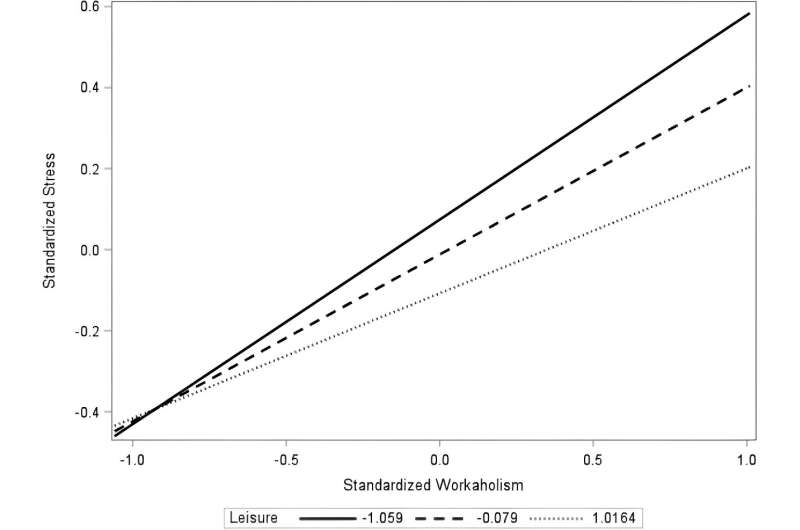This article has been reviewed according to Science X's editorial process and policies. Editors have highlighted the following attributes while ensuring the content's credibility:
fact-checked
proofread
Workplace wellness policies could soften the effects of workaholism, study suggests

Employers should consider more ways to facilitate time off for the employees who are least likely to take it—workaholics. That's the conclusion of counseling experts who conducted a workaholism study published in The Career Development Quarterly.
Workaholism is defined as an irresistible urge to work at the expense of other life activities. Research has linked workaholism with harm to mental and physical health and social relations, which in turn can lead to costly health problems.
Industrial/organizational psychologist Shahnaz Aziz and her colleagues investigated how leisure activities—including physical activity, vacation, and mindfulness practices such as yoga and meditation—affects employees' workaholism tendencies and work stress. They conducted an online survey of 367 full-time workers from various industries in the U.S. The participants—mostly white, college-educated women—answered questions designed to measure workaholism, work stress, and leisure time.
On average, the participants' responses indicated a low-to-moderate level of workaholism and high level of work stress. More than half engaged in mindfulness activity, and most (80%) took a vacation within the previous year. Nearly 50% of them engaged in daily physical activity. The findings indicated, however, that participants who scored high on workaholism were less likely to engage in leisure activities and had higher levels of work stress. But when they did engage in leisure activities, their work stress lessened, the results suggest.
Aziz and colleagues acknowledged limitations in their findings, including the use of self-reported data. But they suggested that employers enact policies that encourage workers to engage in nonwork activities. Bosses could, for example, require employees to leave all organization-issued devices at the workplace while on vacation.
"By emphasizing the benefits of leisure participation … employers can redesign wellness policies that better serve compulsive and stressed employees," they wrote.
More information: Shahnaz Aziz et al, Take a break! Leisure participation moderates the workaholism–work stress relationship, The Career Development Quarterly (2023). DOI: 10.1002/cdq.12336
Provided by American Counseling Association





















